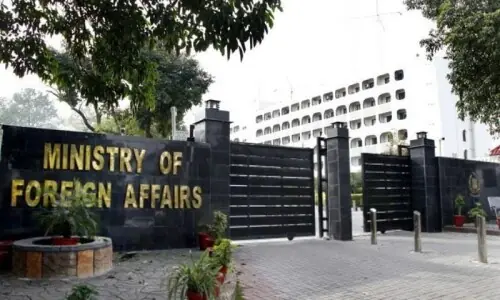MASHAL Khan has been absolved posthumously of blasphemy allegations. A report by a joint investigation team states that the young man who was killed by a mob on a Mardan campus on April 13 had been framed. The possible motives include a desire to remove him from the scene since he was considered a hurdle by a political party or group. It is tragic that those who were responsible for his murder could not think of non-violent ways to handle what they saw as dissent among their ranks. Unfortunately, blasphemy charges have been used all too frequently to settle even smaller scores. So great is the emotional wave around a blasphemy case that it often results in riots, making an honest inquiry next to impossible. There are always points in a sequence where an intervention by those in authority can prevent a charged few or even an enraged crowd from taking matters into their own hands. The Mardan probe mentions a moment when a couple of teachers managed to have a sobering effect on those going after a friend of Mashal Khan at the university. A similar timely intervention by teachers could have prevented the killing of the young student, but it is debatable whether it could have materialised — those who could have shown the angry attackers other ways — legal and political — of settling their argument were alleged to have been part of the conspiracy.
Some of those involved have since reportedly expressed their regret at being overtaken by emotion, but these shows of remorse apart, the real lessons must be learnt by the government. The authorities must see and acknowledge the evidence which says that prompt tackling by officials present of blasphemy accusations can help prevent situations where mobs are found to be violating the law. Instances of how deft handling by the police, following the surfacing of blasphemy allegations, has helped prevent a law-and-order situation do exist, even if they are quite rare. Only recently, the resolve to not allow a violation of the law was on display in Chitral where, after being called by a mosque imam, police stood between a crowd and a man alleged to have uttered blasphemous remarks. These examples of intervention must be studied closely to inculcate greater awareness and a sense of responsibility among the law enforcers. Sensitisation at the local level can help the law enforcers greatly.
Published in Dawn, June 6th, 2017






























